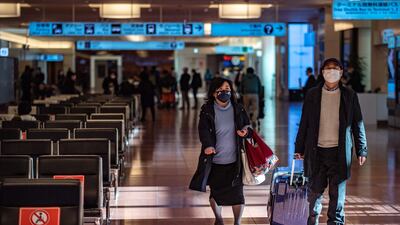The global aviation sector's recovery is being led by airports and aircraft lessors, as these business models proved to be relatively more resilient to the Covid-19-driven downturn, while airlines remain the most challenged sub-sector with a full recovery projected to take years, according to Fitch Ratings.
The recovery of pre-pandemic airport traffic largely depends on the split between domestic and international travel, widely varying based on country and geography, and the role airports have in their areas, the ratings agency said.
Airports in regions where domestic travel is dominant, such as the US and the Asia-Pacific, are projected to recover faster compared to those dependent on international travel such as Europe, the Middle East and Africa, Fitch said.
"The pandemic has resulted in the worst event-driven crisis in aviation history ... the downturn materially affected the financial and credit metrics of airlines, aircraft lessors and airports, as well as the performance of aircraft and engine asset-backed securities," it said.
Aviation was among the industries hardest-hit by the pandemic ― with a domino effect on other major verticals such as tourism, hospitality and supply chains ― but it is gradually recovering.
But while 2021 was not marked by the prolonged lockdowns seen in 2020, border closures, quarantine measures and other travel restrictions still in place to stem the spread of Covid-19 and its variants have continued to hamper the aviation industry's fragile recovery.
Last week, the S&P Supercomposite Airlines Industry Index closed 6.1 per cent higher, marking the first back-to-back weekly gains for airline stocks since early October and potentially indicating the beginning of a long-overdue recovery.
Pressure on airline profitability has also eased since the fourth quarter of 2021 and is set to continue to do so as passenger traffic recovers and cargo demand strengthens, the International Air Transport Association said last week. Airlines losses are expected to drop to $11.6 billion from $51.8bn in 2021, Iata said last October.
Oil prices also play a major role in aviation's recovery, with Fitch expecting the industry to adjust to higher fuel prices over time, assuming they remain elevated. While airlines remained profitable in 2013 and 2014 at a time when jet fuel prices were higher than they are now, the near-term outlook projects that fuel prices may drive weaker margins and cash flows in 2022 compared to prior expectations.
The airline industry took on significant debt as operators sought to maintain liquidity throughout the pandemic, which Fitch said will take several years to reduce before carriers return to pre-pandemic credit metrics.
"Airlines are sensitive to further travel restrictions but the impact on the [credit] ratings largely depends on the duration and severity of the restriction. Longer-lasting travel restrictions could delay our expectations for airline credit metrics to return to levels that support the current ratings over the next one to two years and could drive negative actions," Fitch said.
"Along with managing higher debt levels, airlines are dealing with higher fuel prices, labour inflation and continued uncertainty with the virus that will limit near-term upgrades."
Investment-grade rated aircraft lessors, meanwhile, are less sensitive to further travel restrictions thanks to stronger balance sheets, continued access to capital markets, low operating cash burn and meaningful customer and geographic diversification, Fitch said.
"Remedial steps taken by airlines and government support mechanisms implemented since the pandemic should reduce lease defaults and deferrals," Fitch said, supporting its improving sub-sector outlook for lessors.
Fitch acknowledged that airline recoveries have been slower than expected. But it has seen strong indications of renewed demand for air travel, supported by a healthy rise in bookings on the back of news around loosening border restrictions in certain areas globally.
"The underlying level of demand gives us confidence that airline recoveries should be sustainable even if the pace of the recovery has not been in line with our initial forecast," it said.
Government support and receptive capital markets also allowed airlines to build substantial cash balances, allowing them to escape the worst of the risks.
Region-wise, the financial performance of airports in the Asia-Pacific is improving and would possibly continue amid higher vaccination rates. In Emea, airports were able to use significant financial flexibility through the peak of the pandemic shutdowns, which included deferring capital expenditure, reducing operational costs and cancelling dividends.
Fitch sees "sufficient risks and uncertainties that widespread upgrades are less likely in the near-term".






















